'My fertility app made me too stressed to conceive'
- Published
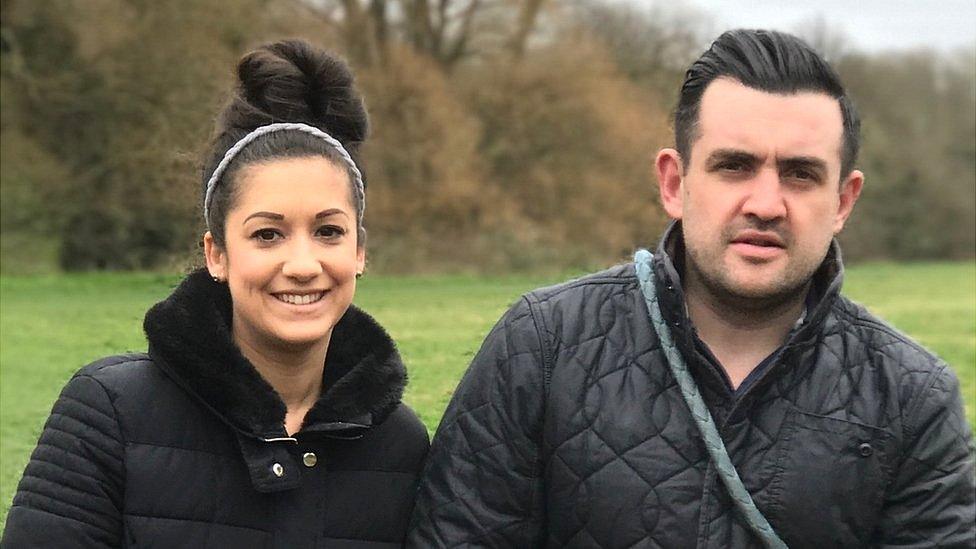
Kathy Beaumont and her partner Chris decided fertility apps weren't for them
When Kathy Beaumont started trying for a baby two years ago, she turned to the many fertility apps on the market to discover when would be the best time of the month to conceive.
She took her temperature every day and logged it in an app called Fertility Friend, but soon found herself succumbing to a fertility-obsessed frenzy.
"I constantly analysed the analytics section of the app to see how my month looked and whether there was a temperature spike that indicated I was ovulating," says Kathy, 32, a freelance travel copywriter.
"I based when we actively tried for a baby solely on when the app and ovulation kits told me I was ovulating."
But after six months of "trying", Kathy still hadn't fallen pregnant.
"Some months I think we must have missed the window of opportunity entirely," she explains, "either because I'd built up to it so much that the pressure made me too stressed to conceive, or because the app wasn't accurate."
She decided to quit using the apps "for the sake of my sanity" and became pregnant the following month.
"They definitely serve a purpose," she concedes, "but they aren't the be-all and end-all."
But for some women, they are.
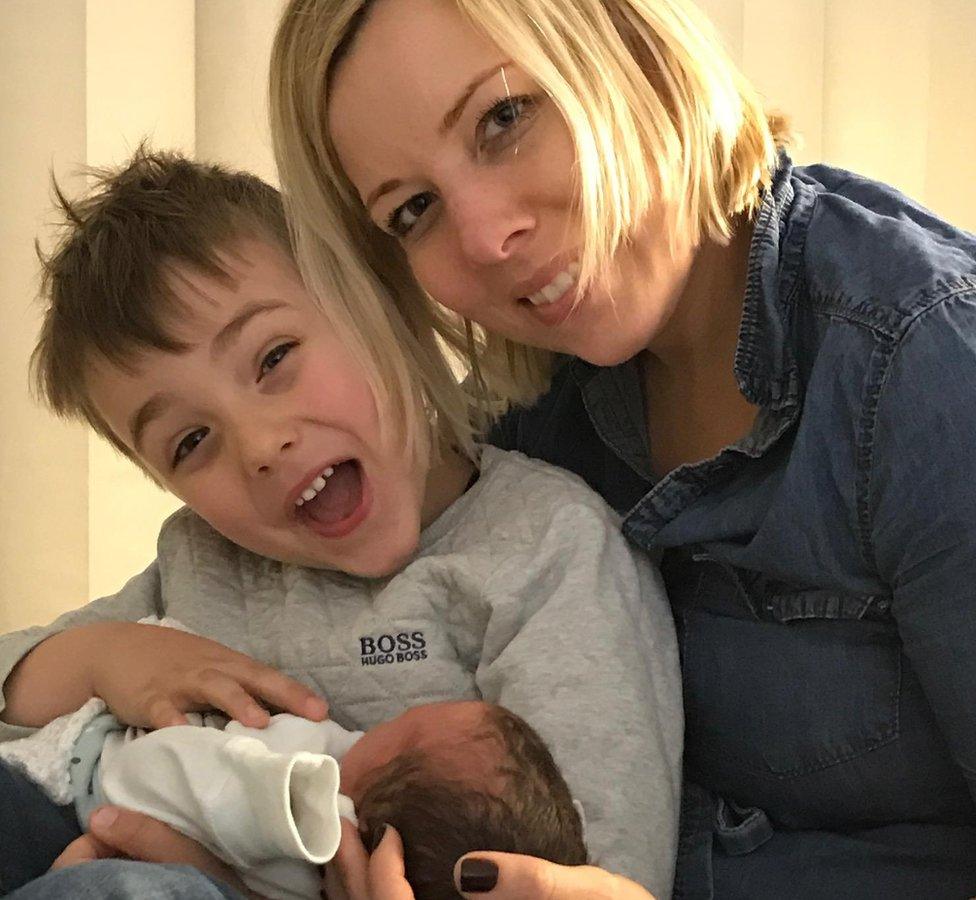
Sara Flyckt says she tried the Natural Cycles app after the pill turned her into "a nasty person"
Londoner Sara Flyckt, 35, started using an app called Natural Cycles four years ago after hearing about it in a Swedish podcast.
It analyses the body's temperature to determine whether or not the user is fertile and needs to use contraception.
"I was on the pill before and the hormones made me into quite a nasty person, so when I heard about this natural option it felt like a no-brainer to try it," says Swedish-born Ms Flyckt.
And, after initially using it as a contraceptive, last year she used it to plan a pregnancy.
"It certainly helped me find my fertile days. It's very easy to use, and it's especially helpful as both my partner and I worked full time within hospitality and sometimes we wouldn't see each other for a few days.
"With this app you know when to try and make time to see each other."
Swedish start-up Natural Cycles' app recently won medical approval as a contraceptive.
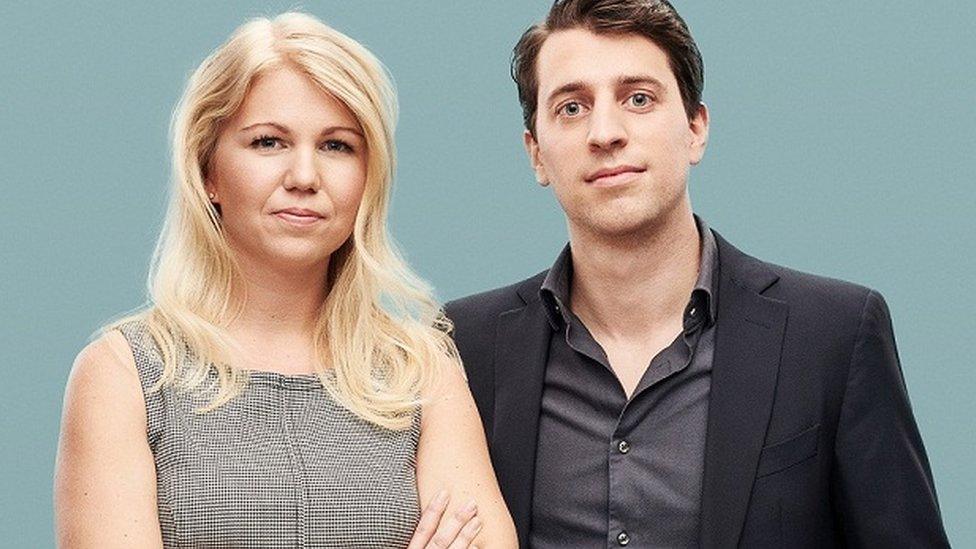
Natural Cycles founders Elina Berglund and Raoul Schweitzl
Technology targeted at women - or femtech as it's been coined - covers everything from birth control and period tracker apps to sex toys and breast pumps.
And the market has been booming in recent years.
"We're seeing really significant growth in funding to femtech start-ups," says Zoe Leavitt, tech analyst at CB Insights.
"The number of deals shot up from 20 in 2014, to 40 in 2015, and in 2016 deals and dollars set a record high, with $540.5m (£433m) across 52 deals.
"Overall, we've tracked $1.26bn in investment since 2009 across 173 deals."
But there are concerns that some women might become enslaved to such apps.
Lea von Bidder is co-founder of Ava, a firm that has developed a wearable bracelet and app for tracking a woman's fertile window in real time.
"When it comes to fertility tracking, the current options require women to make it almost a part-time job to track their fertility," she says.
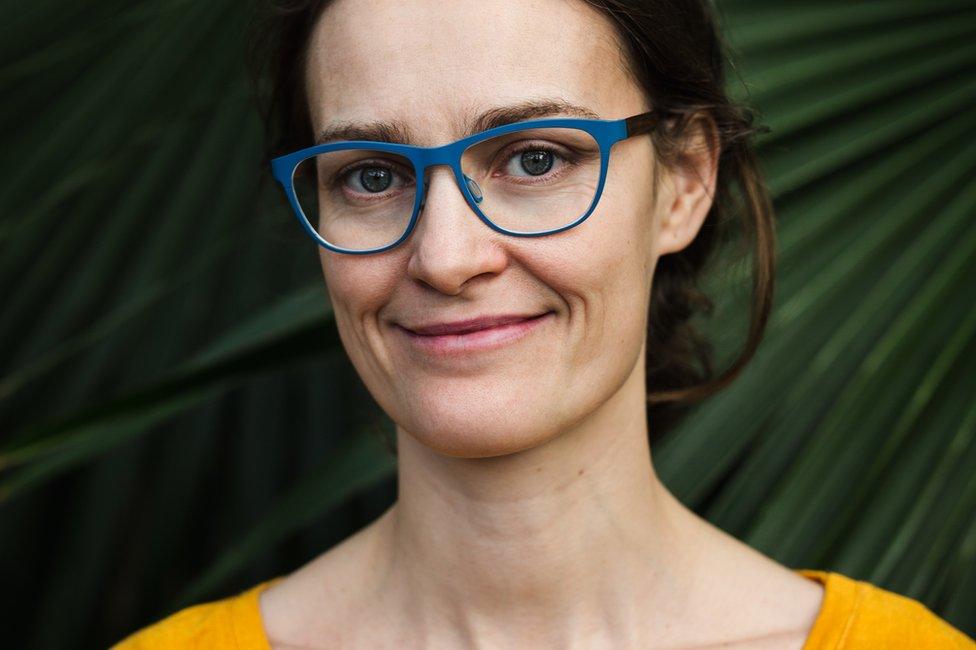
Clue co-founder Ida Tin says her app has attracted more than five million users
"They have to pee on sticks multiple times per day, wake up early to take their temperature at exactly the same time each morning, or examine their cervical mucus every time they go to the bathroom.
"By creating a bracelet that is only worn at night and does away with all this work, we firmly believe we are helping women to be less stressed and neurotic about fertility tracking."
Many of the apps in this space aren't just targeted at those trying for a baby.
Ida Tin, co-founder of Berlin-based start-up Clue, describes the firm's menstrual cycle tracker as being "empowering for women".
She adds: "For some, it's the first time they've really been able to get insight into their bodies. People use these apps because they want to understand their body better.
"The app is helpful whether you're trying for a baby or want to know when your next period is."
Many women seem to agree - Clue has about five million active users globally.
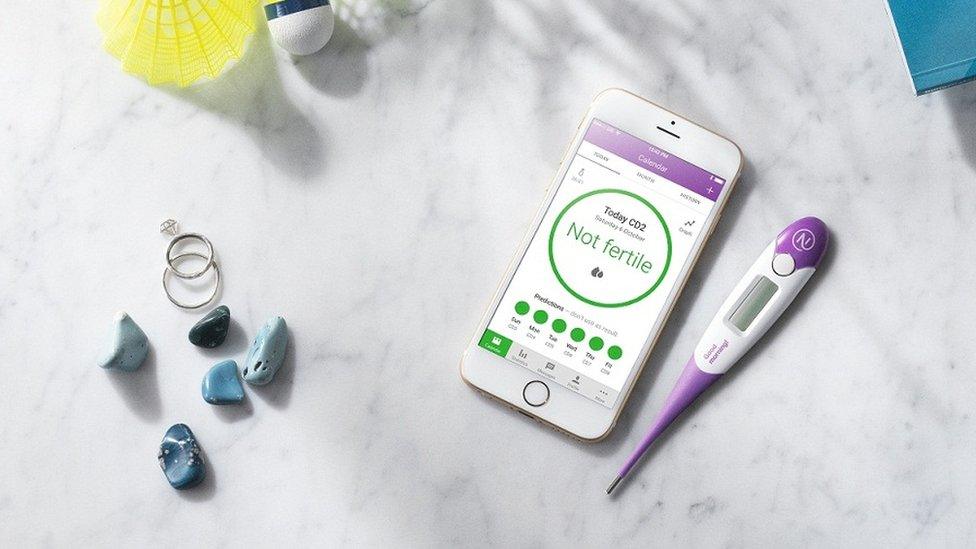
The Natural Cycles fertility app has been shown to be as effective as some other contraceptives
But the UK's National Institute for Health and Care Excellence (Nice) advises users to treat fertility apps with a degree of caution.
"There are probably many examples of new tech companies and technologies in the fertility space that bring the promise of benefits to patients and users, but they must be properly assessed before they are used in a healthcare setting," says Alexia Tonnel, director of evidence resources at Nice.
"Where possible, users should look for an independent review of the claimed benefits."
Some sexual health charities, organisations and experts have also expressed concerns over the efficacy of such apps.
But for millions of women worldwide, they have proved essential as a contraceptive, an aid to pregnancy, and as a way of understanding more about their monthly cycles.
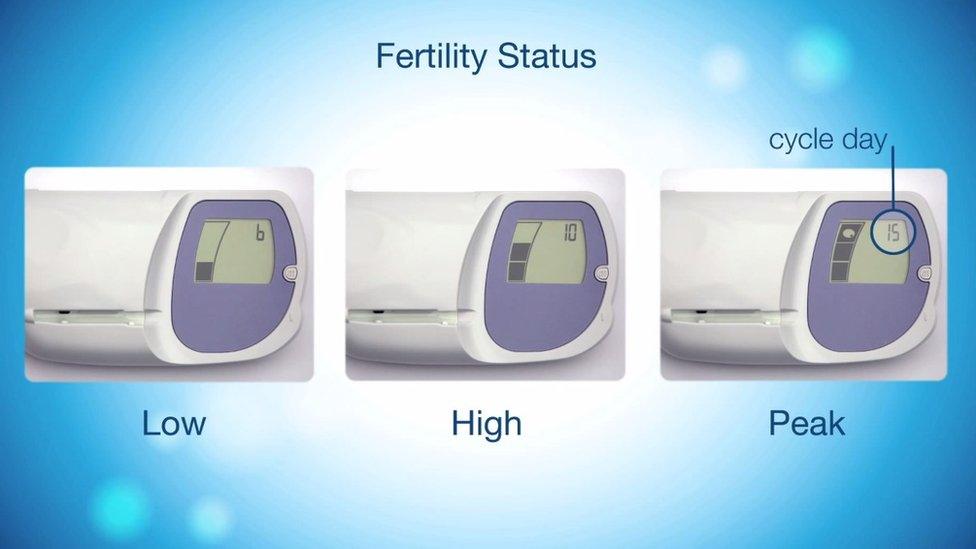
Clearblue's Fertility Monitor relies on daily urine samples
Gemma Moore turned to ClearBlue when she was trying for her second child.
"I used the ClearBlue Fertility Monitor to measure my hormone levels and find out the four days I was most likely to conceive.
"By knowing what was going on with my hormones and realising I ovulate far later than the average woman, I was able to pinpoint when I was most likely to conceive."
In the second month she got pregnant and gave birth to her son, Oscar, last September.
As for the future, it's expected that the femtech sector will continue to thrive.
"We are not only seeing successful innovation in women's health, but also in areas such as personal hygiene, baby care and breast pumps," says Lea von Bidder from Ava.
"This is critical as most of those companies are just catching up with the technological and innovative changes we are already used to in all other aspects of our lives."

Follow Technology of Business editor Matthew Wall on Twitter, external and Facebook, external
Click here for more Technology of Business features, external